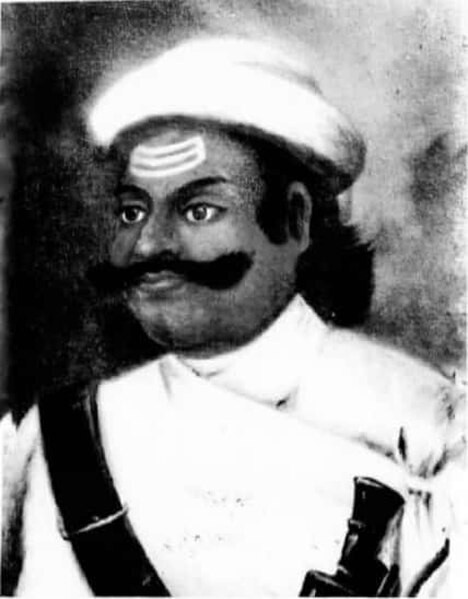Thapa (pronunciation:) is a Nepalese surname belonging to the Magar Civilisation of Nepal. They are indigenous people of Nepal. It is also used by the Chhetri community group in Nepal.
Portrait of a Thapa Bhimsen Thapa, Thapa surname is associated with warriorhood
Emblem of the Godar Thapa Clan
In the course of the unification campaign, Jasaram Thapa and Champ Singh Godar Thapa were each rewarded with half of the Sindhuili (आधा आधा) region as a reward for their valor by The King Prithivi Narayan Shah. Both Thapa families, including the descendants (clan) of these two Thapas, were assigned the responsibility of residing in and defending the Sindhuili region. Godar Thapas themselves settled in the Khaniyakharka of Sindhuili and engaged in various tasks and work.
Lakhan Thapa Magar, First Martyr of Nepal; an ethnic Magar
Chhetri, historically called Kshettriya or Kshetriya or Khas are Nepali speaking Rajputs of Khas community, some of whom trace their origin to migration from medieval India. Chhetri was a caste of administrators, governor and military elites in the medieval Khas Kingdom and Gorkha Kingdom. The nobility of the Gorkha Kingdom mainly originated from Chhetri families. They also had a strong presence in civil administration affairs. The bulk of prime ministers of Nepal before the democratization of Nepal belonged to this caste as a result of the old Gorkhali aristocracy. Gorkha-based aristocratic Chhetri families included the Pande dynasty, the Basnyat dynasty, the Kunwar family, and the Thapa dynasty,.
A Nepali Khas Chhetri woman in Nepal (1900)
Kalu Pande wearing Khukuri, a Pande Chhetri aristocrat; Kaji (Prime Minister and Army Chief) of Gorkha Kingdom.
Bhimsen Thapa, a leading Chhetri Mukhtiyar (Prime Minister).
Abhiman Singh Basnyat, a Basnyat Kshetri Mulkaji (Prime Minister)








